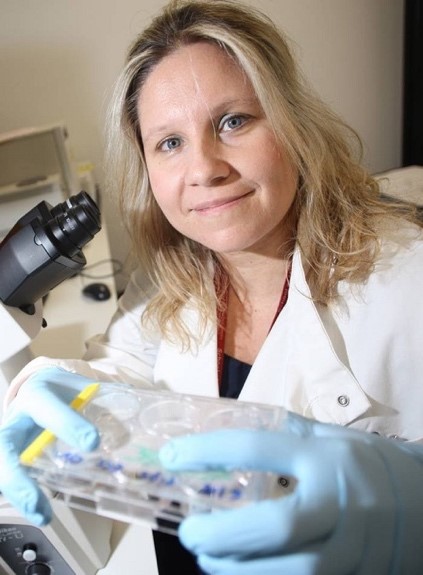We believe in TEAM
TEAM MEMBERS
Professor Margariti has developed significant expertise in stem cell biology, with particular emphasis on cell reprogramming, chromatin remodelling, cell signalling and endothelial cell biology. She had received her postdoctoral training in the Cardiovascular Division of the BHF Centre of Excellence at King’s College London (KCL). In 2013 Prof Margariti was appointed as a Lecturer in the Centre for Experimental Medicine (CEM), in Queen’s University Belfast (QUB). She has received a BBSRC New Investigator award to study the mechanisms of endothelial cell direct reprogramming and a range of BHF grants to study the endothelial cell dysfunction. Prof Margariti and her team have worked extensively to elucidate the underlying mechanism of endothelial cell reprogramming and they have generated functional endothelial cells based on a fully defined environment. In 2017 Margariti’s Laboratory demonstrated how the RNA binding protein QKI-5 is a key player on EC reprogramming inducing neovascularisation and angiogenesis while more recently they have shown the mechanism whereby FSTL3 and ESM1 enhances the function of iPS-ECs. In 2019, the team showed that QKI-6 is implicated in vascular smooth muscle differentiation, and, by combining QKI-5 and QKI-6, functional blood vessels were generated. Importantly, a breakthrough study in her lab (Yang et al., Nature Communications, 2020) is showing that targeting QKI-7 expression in vivo restores EC function in diabetes. By investing on their unique expertise on cell reprogramming and iPS cell technologies, Prof Margariti’s team has developed patient-specific cells lines of diabetes (diabetic patient-specific iPS cell lines in a petri dish) based on fast and highly efficient approaches (Vilà González et al, Diabetes, 2020). These cell lines are now valuable tools to study the underlying causes and mechanisms of the pathogenesis of EC dysfunction, to develop human blood vessel organoids and generate new knowledge, biomarkers of diabetes and effective therapies. Prof Margariti was promoted to Senior Lecturer in 2017, and to Professor in Vascular and Regenerative Medicine in 2020. Prof Margariti is also leading the iPS cell facilities in the Wellcome-Wolfson Institute for Experimental Medicine (WWIEM) in QUB, where iPS cells are generated and differentiated towards vascular cells (including ECs, Smooth Muscle Cells and Pericytes), Cardiomyocytes, Neurons, Macrophages, Retina pigment epithelial cells and many other cell types, including blood vessels organoids and Kidney organoids.
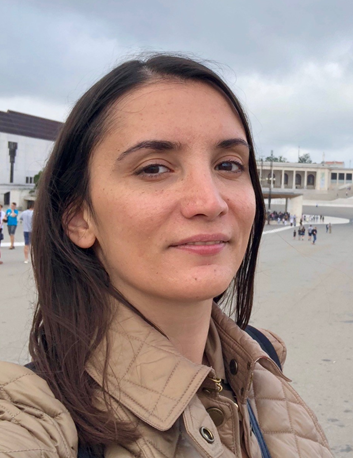
Sophia Kelaini
Research Fellow
s.Kelaini@qub.ac.uk
I am a molecular biologist with an interest in stem cells and regenerative medicine. I have particular interest in genetic reprogramming and differentiation of induced pluripotent stem cells (iPS) that could expectantly find clinical applications in cell replacement therapy and treatment of disease. I’ve been researching new ways of improving iPS cell reprogramming efficiency and differentiation as well as generating large numbers of pure cell populations that are safe to use in a clinical environment. My current focus is generation of bovine iPS cells from different cell sources using non-integrating methods that could eventually be differentiated into macrophages for the study of devastating cattle diseases such as bovine tuberculosis.
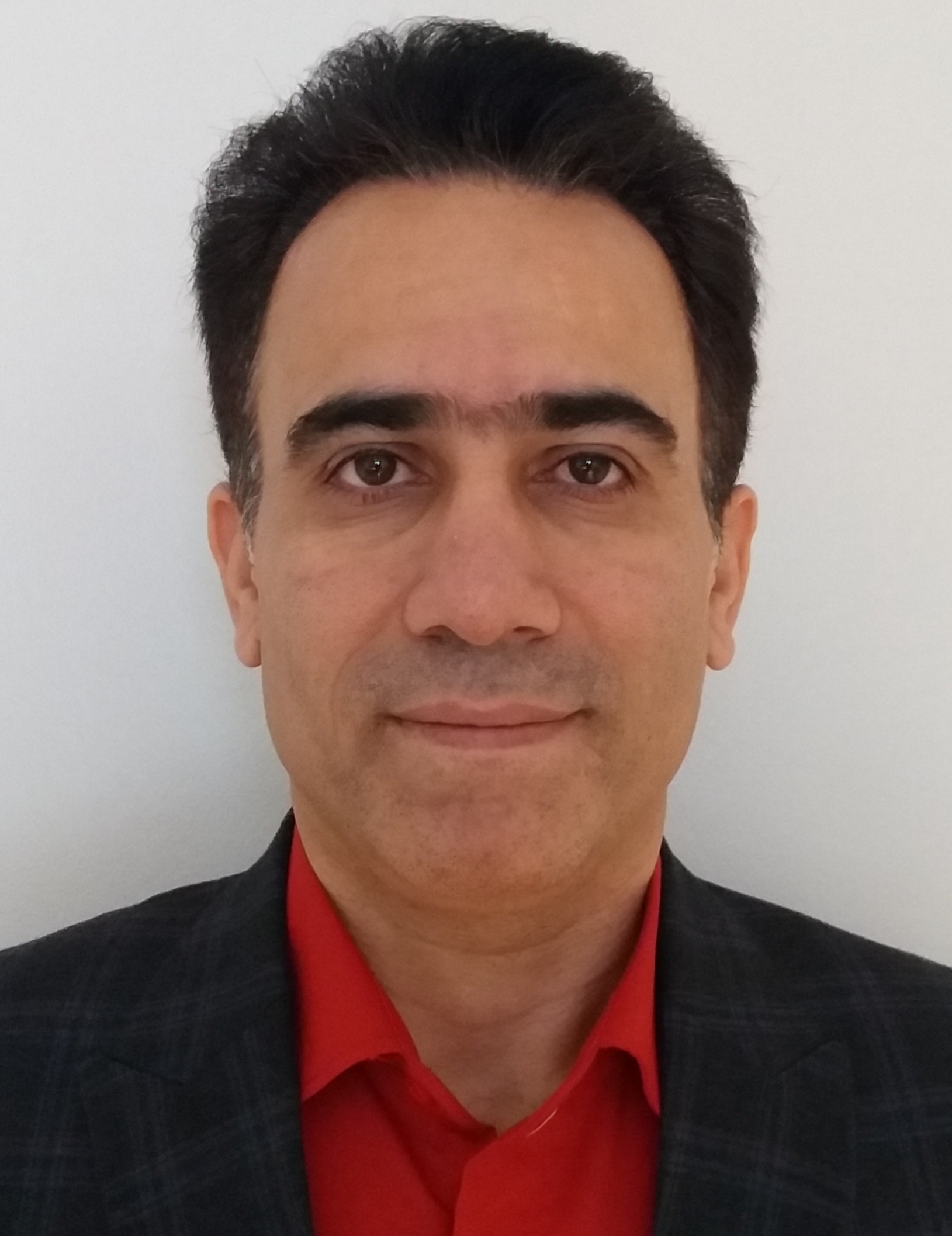
Hojjat Naderi-Meshkin
Research Fellow
h.Naderi-Meshkin@qub.ac.uk
I am a cell & molecular biologist with experience on both “wet-lab” and “dry lab”. Here, I am engaging in multiple complementary and collaborative projects both as leading investigator and contributor. One of my main project is aimed to generate vascular organoids from iPS cells of healthy and diabetic individuals. Subsequently, I am going to characterize these organoids by single-cell RNA-seq and interrogate their functionality in animal model of HLI. In particular, deciphering the roles of RNA-binding proteins in endothelial cell dysfunction is my point of interest. Furthermore, because of my experience in bioinformatics and R programming language, I am into analysis of high-throughput data such as single cell & bulk RNA-seq, chip-seq, etc to find deregulated factors responsible for endothelial cell dysfunction.
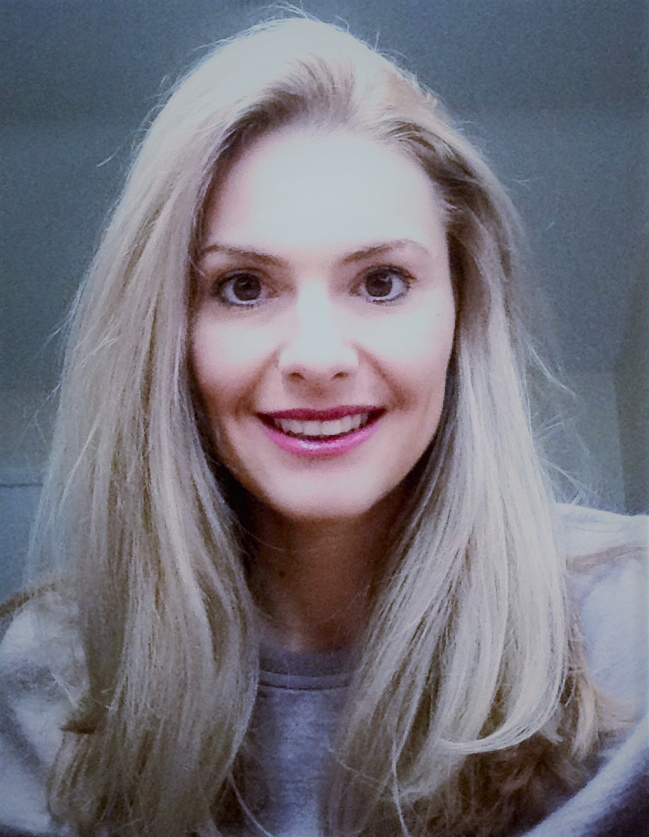
Magdalini Eleftheriadou
Research Fellow
eftheriadou01@qub.ac.uk
PhD researcher with advanced expertise in Stem cell and Cardiovascular Research. Involved in multiple complementary and collaborative projects both as leading investigator and contributor. Highly advanced expertise in Biomaterials, Induced pluripotent stem cell technology and Regenerative Medicine with particular emphasis in cell reprogramming and tissue engineering. My research interest involves the use of patient-specific cells to study the underlying causes and mechanisms of the pathogenesis of the endothelial cell dysfunction. The scope of my research is to generate patient specific ever-expanding stem cells to model diseases in vitro.
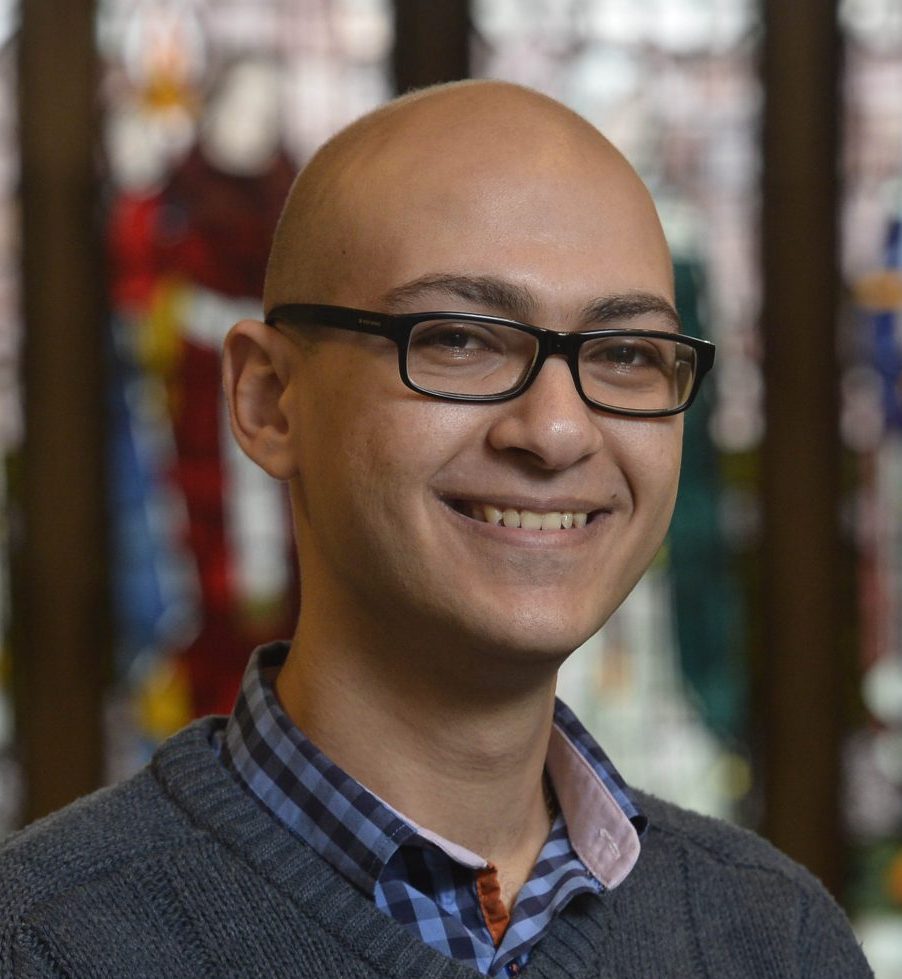
Andrew Yacoub
PhD student
ayacoub01@qub.ac.uk
I am a PhD student with advanced expertise accumulated along my studies of induced pluripotent stem cells (iPSCs), regenerative medicine and pharmacy. The aim of my research is to use the state-of-the-art technology “Organoids” derived from patient-specific stem cells to have better understanding of the underlying mechanisms of how cardiovascular diseases arise in diabetic patients. I focus on differentiating iPSCs to endothelial cells which are the lining cells of the blood vessels, and to screen the patient-specific organoids with potential drugs within the personalised medicine approach. My ultimate goal is to contribute to find one of the novel therapies for diabetic and cardiovascular patients.
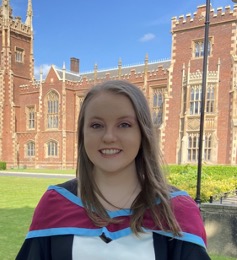
Victoria Cornelius
PhD student
vcornelius01@qub.ac.uk
I am a current PhD student with a particular interest in induced pluripotent stem cells (iPSCs) and regenerative medicine in the field of cardiovascular and diabetes research. The main focus of my research is to decipher the pathogenic role of the RNA-binding protein Quaking (QKI) in diabetic endothelial dysfunction using iPSC technologies to derive physiological disease models from diabetic donors. Furthermore, I am interested in isolating a drug capable of targeting QKI to alleviate the associated vascular complications. In addition, I am currently performing collaborative work using 3D printing to develop medicated vascular prosthesis.
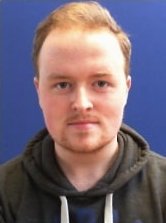
Garrett Carney
PHD student
gcarney03@qub.ac.uk
I am a PhD Researcher whose expertise lie within Stem Cells and their applications in investigating the pathogenesis behind Maculopathies. From completing my master’s project with Professor Margariti, I gained expertise in induced pluripotent stem cells (iPSCs); from their derivation from a small volume of blood, to their culture and maintenance, to their subsequent differentiation. I was heavily involved in the troubleshooting and development of our state-of-the-art Blood Vessel Organoid system alongside my colleague and highly faceted research fellow, Dr. Hojjat Naderi-Meshkin. In Maculopathies, the Retinal Pigment Epithelium (RPE) are the main homeostatic regulatory cells which become degenerative and initiate a cascade of events which can compromise vision by the dysregulation of other cell types within the macula and choroid. Therefore, with my experience and expertise, my PhD research has lent me to focus on developing a bone fide model of Maculopathies in vitro. Currently I am developing patient specific iPSC-RPE which will be stringently characterised and functionally assessed to ensure they are exemplar. Once content with this in vitro model; iPSCs will be derived from patients suffering of maculopathies and subsequently differentiated to iPSC-RPE. These iPSC-RPE will then be subjected to characterisation, functionality testing, RNA-Seq and Metabolomics to help identify the key mediators in the early development of Maculopathies.
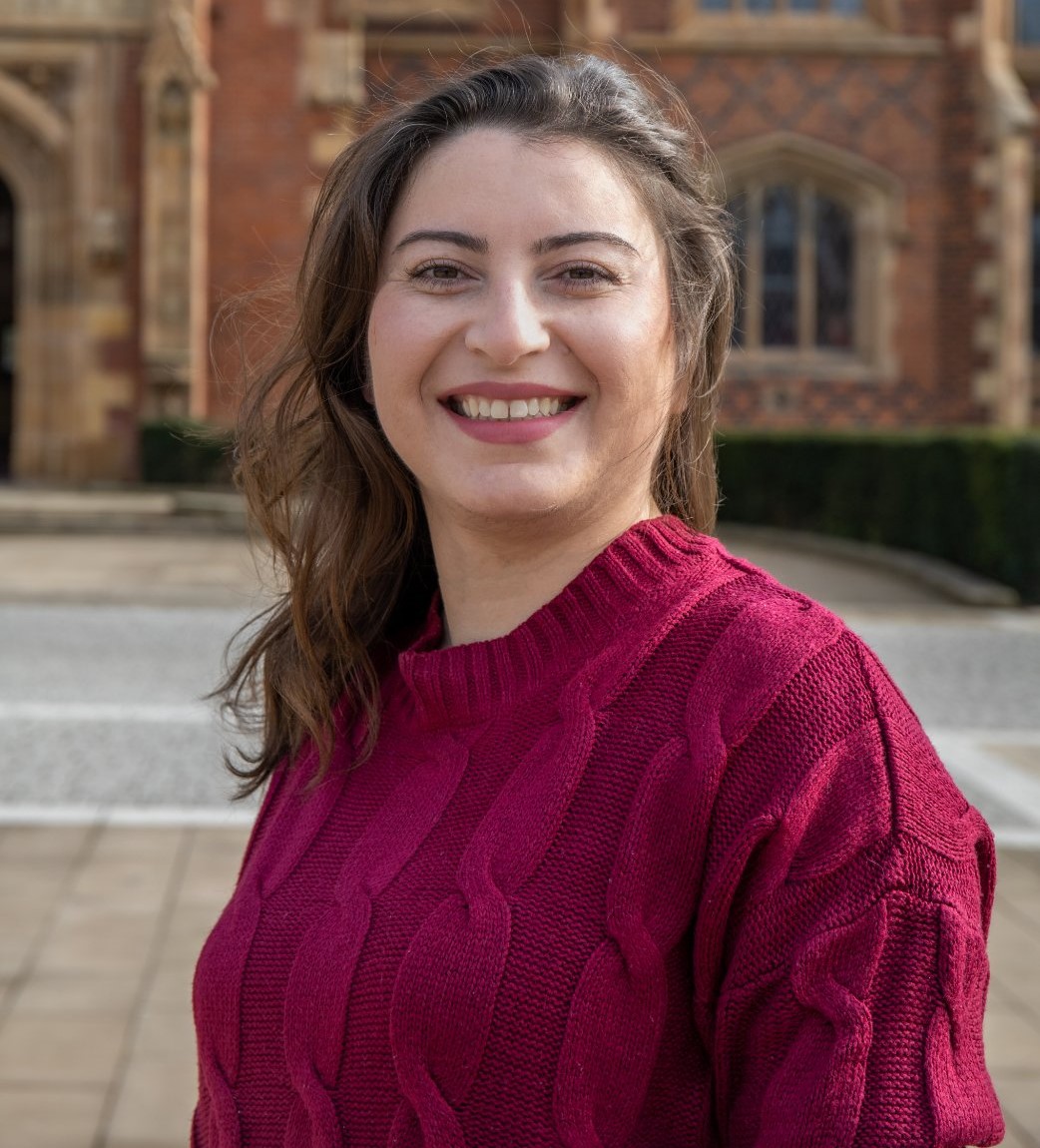
Anna Korelidou
PhD student
akorelidou01@qub.ac.uk
I am a molecular biologist with experience in clinical laboratory analysis and microbiology. Here, I am an Early Career Researcher within the CITI-GENS Marie Skłodowska-Curie PhD programme, working with Professor Margariti as my second supervisor. My interest is in 3D printing technology for biomedical applications using biocompatible and biodegradable polymers. My focus is on implantable devices loaded with cells, drugs and growth factors to improve the therapeutic outcome of cardiovascular diseases. My project is an interdisciplinary and intersectoral approach via tissue engineering combined with material sciences, additive manufacturing and the incorporation of a pharmaceutical company.
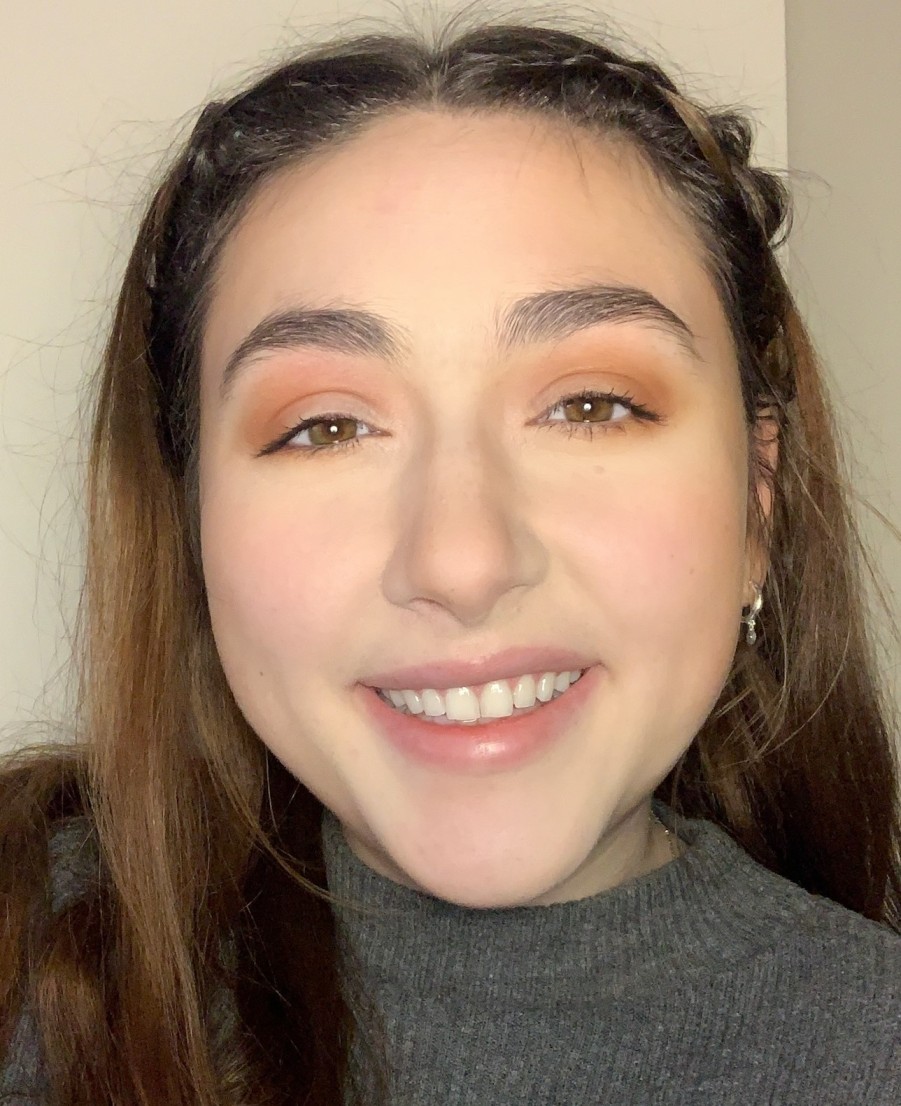
Clare-Ann Nelson
MSC student
cnelson20@qub.ac.uk
I am a Masters Student with a Microbiology background currently studying under Dr. Andriana Margariti’s supervision. My project focuses on the investigation of vascular organoids as a disease model for cardiovascular disease and diabetes. I am studying the effects of mitochondrial and exosome dysfunction in vascular disease states and their contribution to disease progression. The aim of this project is to identify possible therapeutic targets to alleviate the burden of vascular disease on our society.
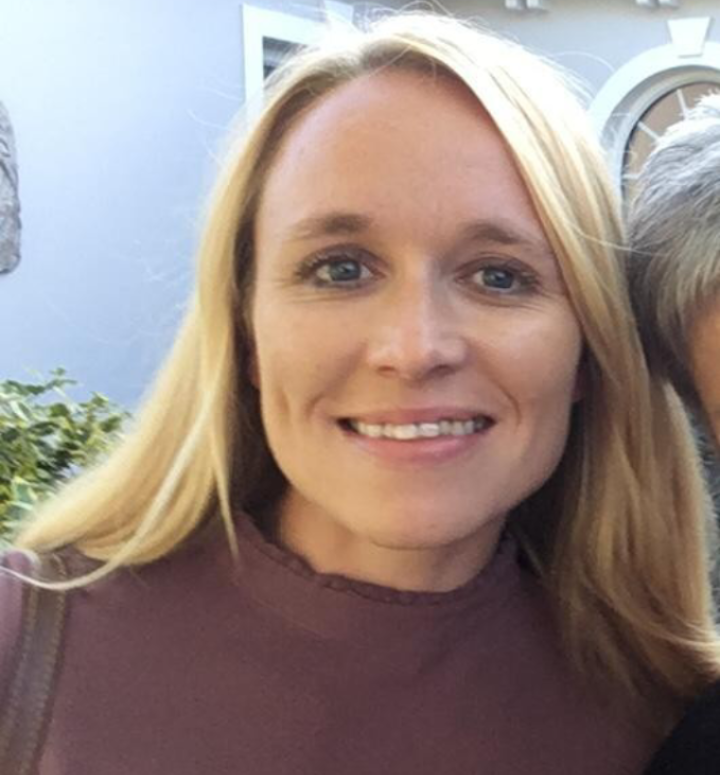
Catherine Fleming
BSC student
cfleming27@qub.ac.uk
I am a final year biomedical science BSc student conducting my research project with the Margariti team. My aims are to identify plausible mechanisms by which the RNA-binding protein QKI-7 mediates endothelial dysfunction, and to explore if, and how, three candidate drugs may downregulate QKI-7 expression. I am currently working with literature and clinical trial data to support in vitro assessments of these drugs.

Who is NEXT? 🙂
PhD student
???????@qub.ac.uk
I am a Masters Student with a Microbiology background currently studying under Dr. Andriana Margariti’s supervision. My project focuses on the investigation of vascular organoids as a disease model for cardiovascular disease and diabetes. I am studying the effects of mitochondrial and exosome dysfunction in vascular disease states and their contribution to disease progression. The aim of this project is to identify possible therapeutic targets to alleviate the burden of vascular disease on our society.
Former recent members
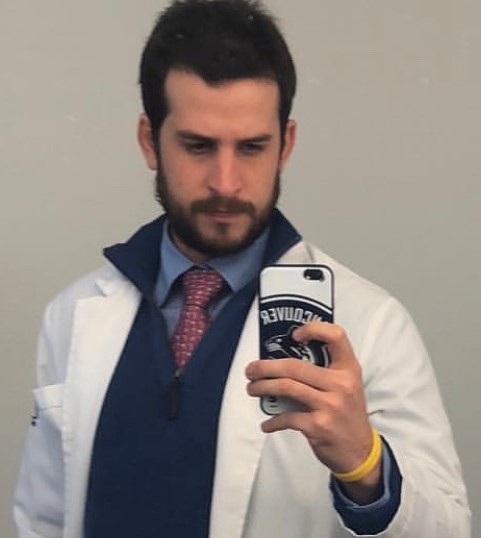
Sebastian de Nys Cortina
MD, MSc student
sdenyscortina01@qub.ac.uk
The objective of my project consists in creating vascular organoids derived from Induced Pluripotent Stem Cells (IPSCs) from both healthy and diabetic patients. These organoids in turn will stained with markers and studied under confocal microscopy to determine structural differences between the healthy and diabetic. Further analysis will be done using RT-PCR to determine gene expression and compare any notable differences. Finally, the organoids created will be seeded onto a 3D scaffold and printed into a Matrigel matrix to determine if functional blood vessels can be created by either method and subsequently with the same analysis (imaging and Rt-PCR) will be performed to determine differences.
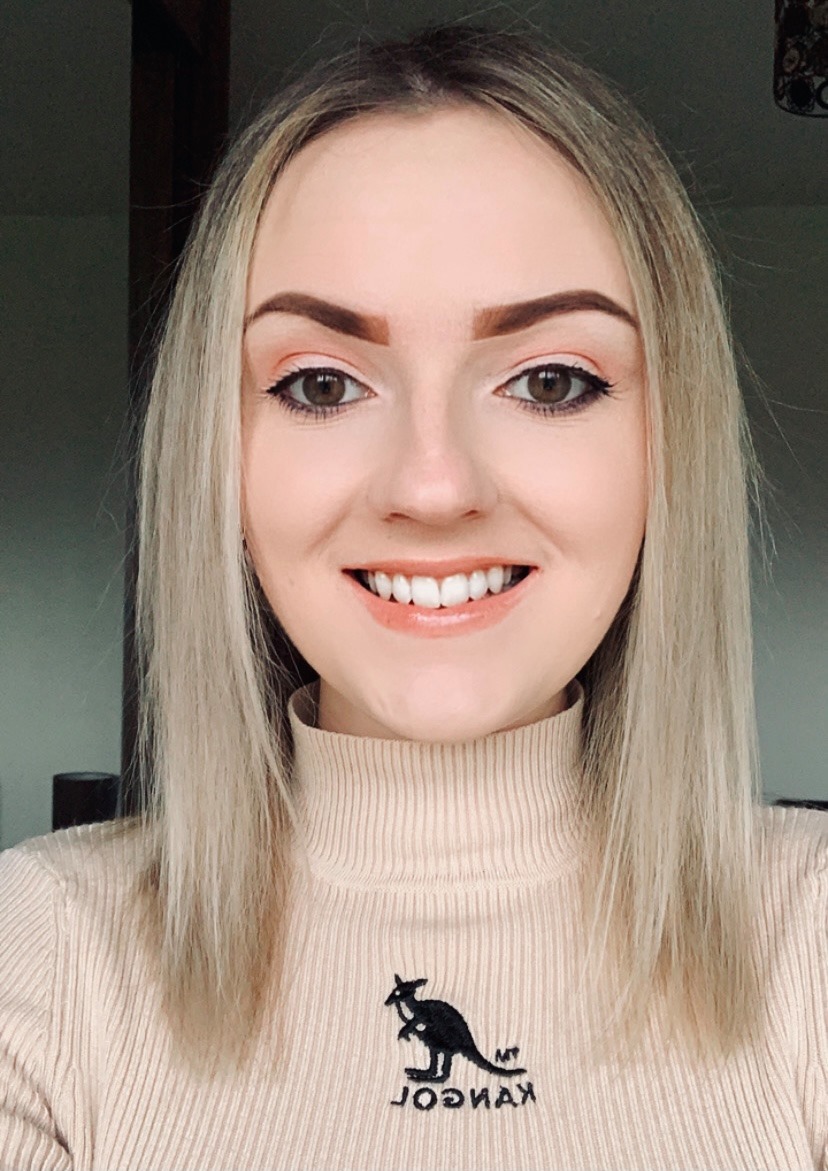
Jenna Fulton
MSc student
jfulton07@qub.ac.uk
I am a MSc Experimental Medicine student with a particular interest in induced pluripotent stem cells (iPSCs) and regenerative medicine in the field of cardiovascular and diabetes research. The main focus of my project is to generate vascular organoids derived from patient-specific iPSCs. These remarkable 3D models of the vasculature will be compared to that of a non-diabetic individual to elucidate the key underlaying mechanisms that drive vascular dysfunction in diabetic patients. Using a range of molecular techniques such as RT-PCR and confocal microscopy, this will highlight any differences in gene and marker expression, key signalling pathways and specific cell-cell interactions, paying particular attention to endothelial cell-pericyte crosstalk. This newfound molecular knowledge will be useful in drug screening to discover new, targeted therapies for diabetic and cardiovascular disease patients.

Amanda Boyle
MSc student
aboyle32@qub.ac.uk
I am a biochemistry Msci student working with Dr. Margariti and her team. My project focuses on the generation of blood vessel organoids. Specifically, the generation of blood vessel organoids from human induced pluripotent stem cells (hiPSCs) from diabetic and non-diabetic patients. These organoids will be compared to identify the underlying mechanisms of cardiovascular disease and diabetes that cause vascular dysfunction. Staining and confocal microscopy will be used to determine the structural differences between healthy and diabetic. Different molecular techniques e.g., RT-PCR and NOS assay will be used to determine any differences in gene expression and notable signalling pathways. This new information will allow for the development of new therapies for the treatment of diabetes and cardiovascular disease.

Celine Chan
BSc student
cchan10@qub.ac.uk
